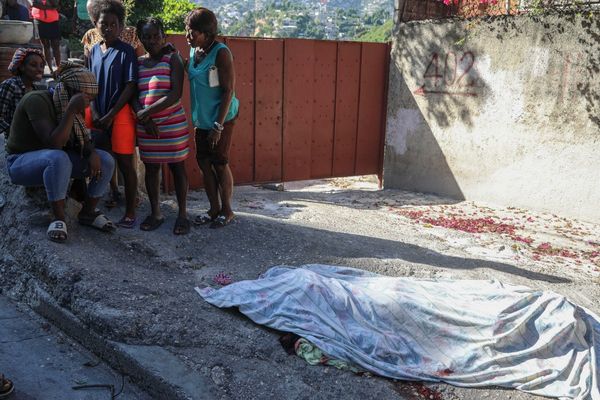
Tokyo (AFP) - The United States, Japan and South Korea warned Wednesday that a North Korean nuclear test would warrant an "unprecedentedly strong response", vowing unity after a blitz of missile launches from the hermit state.
Following talks in Tokyo, the three nations' deputy foreign ministers said they would ramp up their deterrence in the region.
"We agreed to further strengthen cooperation ...so that North Korea can immediately stop its illegal activities and return to denuclearisation talks," said South Korea's Cho Hyun-dong.
"The three countries agreed on the need for an unprecedentedly strong response if North Korea proceeds with its seventh nuclear test," he told reporters.
Seoul and Washington have repeatedly warned that Pyongyang could be close to testing an atomic bomb for the first time since 2017, after a flurry of ballistic missile launches.
One missile flew over Japan last month, and North Korea has separately claimed to have carried out tactical nuclear drills.
"All of this behaviour is reckless and deeply destabilising," said US Deputy Secretary of State Wendy Sherman, urging North Korea to "refrain from further provocations".
Last month, the North's leader Kim Jong Un declared the country an "irreversible" nuclear power, effectively ending negotiations over his banned arms programmes.
Kim met three times with Biden's predecessor Donald Trump, reducing tensions but resulting in no lasting agreement, and the country has shown little interest in taking up US President Joe Biden's offer of working-level talks.
Japan's Vice-Minister for Foreign Affairs Takeo Mori said North Korea's "intensifying nuclear and missile activities...are a clear and serious challenge to the international community".
"We agreed to ramp up the deterrence in our region with a view towards the denuclearisation of North Korea," he said.
The trio said they had also discussed a wide range of issues including the war in Ukraine, China and Taiwan.
But Mori and Cho said there had been no discussion of bilateral relations between Japan and South Korea, which have long been strained.







